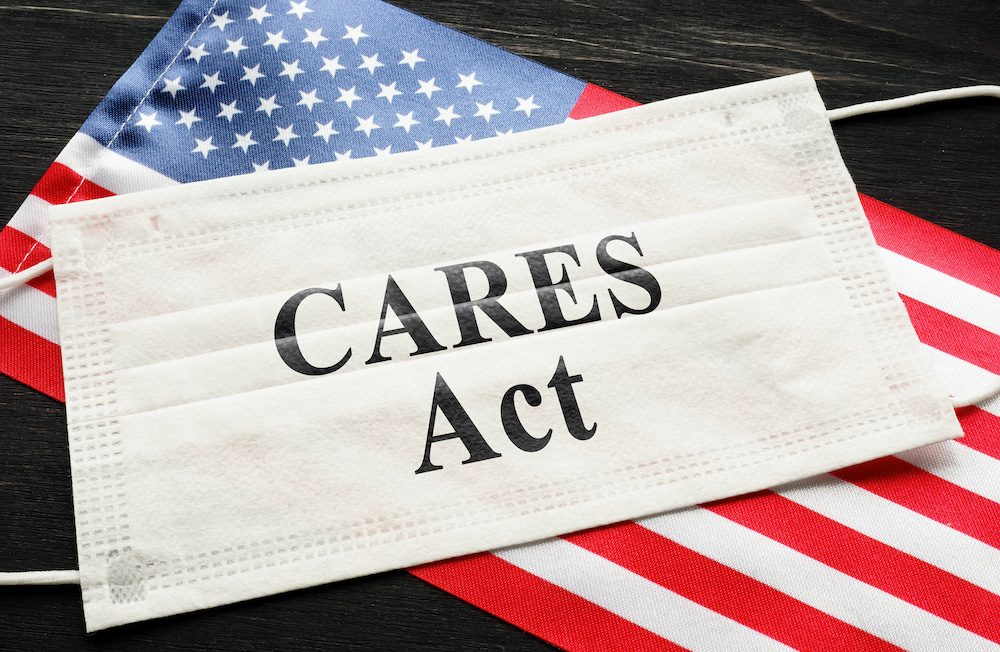
The COVID-19 pandemic has touched almost every aspect of our lives. Our personal finances are no exception. If you’ve lost your job or taken a pay cut, you may have trouble keeping up with your bills, which can damage your credit rating. Provisions of The Coronavirus Aid, Relief, and Economic Security (CARES) Act, however, offer credit protection in some circumstances. Here’s our guide to the CARES Act’s credit protections and other steps you can take to guard your financial health.
Why your credit matters now
When the chips are down, it’s time to fall back on your emergency savings fund. But if you don’t have one, or you’ve already drained it, you may have to rely on credit, either refinancing existing loans or taking out a home equity line of credit to get cash. That’s why the strength of your credit profile and score are crucial at a time like this.
Because your credit score will drop with your first missed payment, pay your bills on time for as long as possible to keep a good profile before requesting help from creditors. If you’ve taken a job or pay cut, it is more important than ever to know exactly where you stand financially. Don’t let fear paralyze you. Instead, list all your financial assets and liabilities. Calculate how long your savings and investments can keep you going before you will be unable to make payments on time or in full.
Be proactive about getting credit protections and guarding your rating. Before you fall into arrears, request credit reports to document your current standing. (You are allowed one free report per year, which you can order from sites like Credit Karma.) Study your report from each of the three credit agencies: Experian, Equifax and TransUnion. Look for errors and contact their resolution departments if needed to set things straight.
Seeking an accommodation
Once you know you’re about to fall behind, contact your lenders, credit card issuers and other creditors to work out accommodations or forbearance before you are in arrears. Most mortgage and auto lenders, utilities and credit card companies offer customer service support to people who’ve been harmed by the COVID-19 pandemic. Your creditors will consider it an act of good faith if you proactively work with them to design a payment plan before you fall behind. You may be able to get a deferral of or reduction of payments for a few months. You will still owe the payment amounts but will have more time to pay.
Be sure to rigorously document your negotiations with the creditor toward an accommodation and get the agreed-to plan in writing. Record the date of every communication and the name of the person you spoke with. Save correspondence about the credit protection you’ve been granted. Ask the companies that you speak with to put a notation or code in your file indicating that they granted you a hardship accommodation because the COVID-19 pandemic caused you financial distress. This will be important to a future loan underwriter who decides on your loan application. To be safe, check your credit reports again after an accommodation agreement to make sure they properly reflect it.
CARES credit reporting protections
If you work out COVID-19-related payment accommodations with creditors and fulfill your responsibilities under those agreements, the CARES Act’s credit protections require those companies to report your account status and payment history as current and in good standing to the three credit agencies. This protection means your credit score won’t be lowered. The CARES Act will not wipe clean previous deficiencies on your credit report, however.
Guard your identity closely
Sadly, there are predators who exploit those who are vulnerable at times like these. Here are steps you can take to avoid identity theft that could also damage your credit.
- Be skeptical of unsolicited e-mail purporting to be from your bank, credit card companies or other vendors. If your bank or a creditor makes an offer that sounds too good to be true, go instead to the vendor’s site directly to see if the offer is legit.
- Remember that no vendor will contact you to “confirm” your login credentials or personal information, so don’t click any links or attachments. Delete such email immediately.
- Keep in mind that the Internal Revenue Service and the Social Security Administration will not contact you by phone or email about some vague violation on your part. Ignore such contacts.
- If you want to prevent anyone from applying for credit in your name, place a freeze on your credit with the three bureaus.


